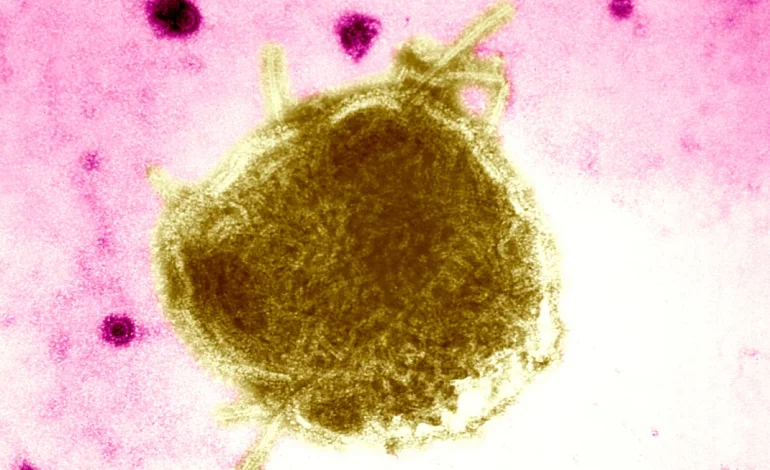Measles, one of the most contagious infectious diseases in the world, has made headlines recently due to an outbreak in West Texas, with dozens of reported cases, CNN reports.
While the virus may seem like a thing of the past, it remains a serious threat, particularly to young children. It’s important for everyone to be aware of measles symptoms, potential complications, and the best ways to protect against the disease.
Measles is a highly contagious virus that can cause severe complications such as blindness, pneumonia, and encephalitis (swelling of the brain). It can also be fatal, especially for children under 5 years old. Dr. Melissa Stockwell, a pediatrician at Columbia University, emphasized that up to 1 in 5 unvaccinated individuals who contract measles may require hospitalization, and 1 in 20 children may develop pneumonia, the most common cause of death from measles.
The measles virus spreads easily through coughing, sneezing, or even breathing the same air as someone who is infected. The virus can linger in the air for up to two hours after an infected person has left the room. Measles is so contagious that one infected person can spread the virus to up to 90% of those around them who are unvaccinated.
The best way to protect against measles is through vaccination, specifically the measles, mumps, and rubella (MMR) vaccine, which is highly effective in preventing the disease. Dr. Glenn Fennelly, a pediatric infectious diseases specialist, states that the MMR vaccine is 93% effective after the first dose and 97% effective after the second dose.
Measles often starts with symptoms that resemble those of a common cold or flu. These early signs include cough, red eyes (conjunctivitis), and a stuffy nose (coryza). However, there are key symptoms that can help identify measles, including:
- High fever, potentially exceeding 104°F
- A red, blotchy rash that typically appears three to five days after initial symptoms
- Koplik spots, which are small white spots inside the mouth that appear two to three days after symptoms begin
Dr. Fennelly advises parents to be on alert if they notice a combination of cough, red eyes, and a stuffy nose, as these three signs together are indicative of measles. If any of these symptoms appear, it is crucial to contact a healthcare provider before visiting a doctor’s office or clinic to prevent further exposure to the virus.
The MMR vaccine is the most effective way to prevent measles. While the vaccine is not 100% effective, the protection it provides significantly reduces the chances of infection and helps prevent severe symptoms. In the United States, however, vaccination rates have been declining, particularly among kindergartners, with more than 125,000 children starting school without the required vaccinations in the 2023-2024 school year. This has led to a rising concern among public health officials.
A record number of schoolchildren had vaccine exemptions last year, and less than 93% of kindergartners received their state-mandated measles vaccinations. To maintain herd immunity and prevent outbreaks, experts recommend that at least 95% of children be vaccinated. The MMR vaccine should be given in two doses: the first between 12 and 15 months, and the second around age 4 or 5 before school.
While the MMR vaccine is highly effective, it is still possible, though rare, for vaccinated individuals to contract measles if they are exposed to the virus. The symptoms of measles tend to be milder in vaccinated individuals, and they are less likely to spread the virus to others. If exposed to measles, getting the vaccine within 72 hours may offer some protection or reduce the severity of the illness.
It’s also important to note that people born before 1957 are likely to have natural immunity to measles due to prior infection. However, those who were vaccinated with the earlier version of the vaccine, which was used before the MMR vaccine became widespread in the 1960s, should consider getting the MMR vaccine for additional protection.
There is no specific antiviral treatment for measles. However, secondary infections like ear infections or pneumonia can be treated with antibiotics. Vitamin A has been shown to help reduce the severity of measles, and it is commonly given to children who are severely ill. The virus weakens the immune system, which makes children more susceptible to bacterial infections, including pneumonia.
Measles-related complications can be life-threatening, and it is essential to monitor children closely. If a child shows signs of excessive sleepiness or irritability, parents should seek medical attention.










The latest news in your social feeds
Subscribe to our social media platforms to stay tuned